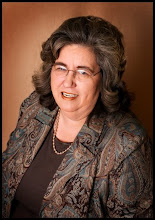Before the medication reaction brought out severe Autistic symptoms in Billy Ray, we met my present husband, Larry and his large family (4 adult children and 12 grandchildren). Billy Ray enjoyed his new nieces and nephews very much and played reasonably well with them. Hans used to say "Billy Ray is a good uncle" which delighted Billy Ray greatly.
After his behavior changed some of the children were frightened by him and others thought he was being naughty. I sought advice from the developmental pediatrician on how to explain his increased noise and activity to the children so that they wouldn't be frightened. Then one day when Elora, Alena, Hans and Oren were visiting from California, Larry involved Billy Ray in something else so I could sit down with them. I explained that Billy Ray could not always control his noise and movements and sometimes had a hard time answering when they talked to him. They asked incredibly mature questions which I answered as best I could.
Watching the relationship change and their understanding of their uncle grow was amazing. The fear disappeared when they understanding increased. It became apparent that as parents we also need to educate others about our children. Out of that knowledge, I realized that many children and even adults in the community stare because they are frightened or they don't understand. The methods for creating a community for Billy Ray came substantially from what Elora, Alena, Hans and Oren taught me about how they perceived him.
Now if we are on the phone with Elora and she hears Billy Ray being noisy, she will say "Is that Uncle Billy Ray? Let me talk to him, it will help." It calms him everytime. Most of "my nieces" read to him when they visit and he loves that.
Until tomorrow,
Peggy Lou
www.parentingyourcomplexchild.com
www.lighthouseparents.com
Everything Upside Down!
14 years ago




1 comment:
You're article is truely amazing and completely true. Know that I am older I understand and I'm never afraid/worried around people who have special needs. They're just like us, but with a slight difference.
Post a Comment